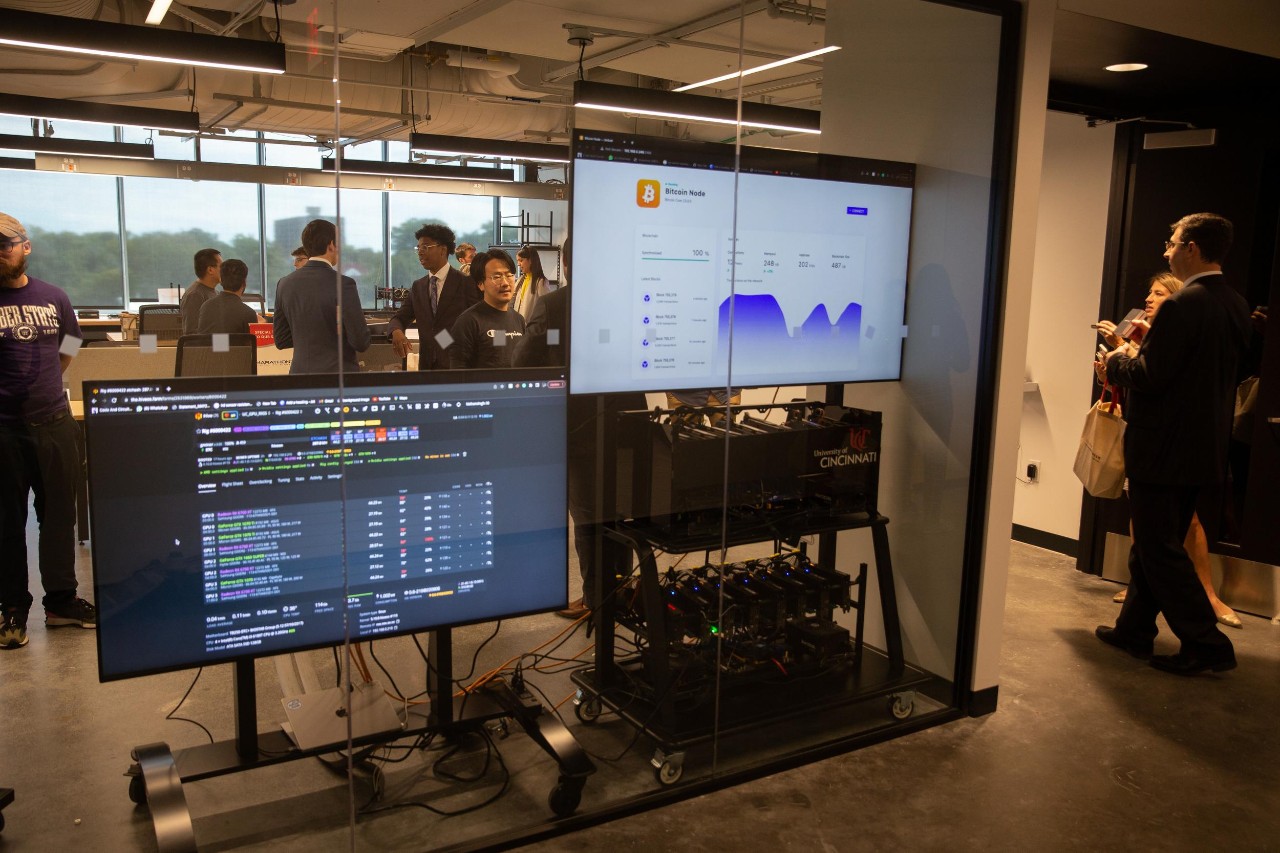A prediction market was more accurate in forecasting the 2024 presidential election than traditional polls and pundits.
Prediction markets, also known as betting markets, are where contracts that are contingent on the occurrence of events in the future can be traded.
The potential displayed by that success in forecasting the election, along with an administration friendlier to cryptocurrencies, could lead to greater adoption for them, a University of Cincinnati economist said.
Michael Jones, PhD, a Carl H. Lindner College of Business assistant professor of economics and director of the Cryptoeconomics Lab at UC Digital Futures, said the success of a blockchain-based prediction market, Polymarket, in predicting the outcome of the election showed that cryptocurrencies and blockchain technologies have more potential than just investments.
"What's exciting is you're seeing a real-world use case that's getting a lot of attention that shows the value and utility of using a blockchain," Jones said.

People gather in the Cryptoeconomics Lab during the grand opening of UC Digital Futures. Photo/Andrew Higley/UC Marketing + Brand
Polymarket is the world's largest prediction market. Users can take a position on whether or not an event will occur. If they're right, they get paid instantaneously. It's built on a blockchain, an unchanging digital ledger of economic transactions that records not only financial transactions but anything of value, in a global and verifiable system.
As Election Day approached, Trump was trading at approximately 60 cents on the dollar on Polymarket. Those who bet on Trump made approximately 40 cents profit per share once he won the election.
The market gave Trump greater odds to win than most polls, which had the election at close to 50-50 odds, and was closer to the final Electoral College tally.
"The polls are just people's opinions; the pundits had their opinions, but there really are no consequences if they got it wrong," Jones said. "Maybe they took a little heat in the media. But if you got it wrong in the prediction market side, then you lost significant amounts of money.
"What people started to realize is there's information contained in these prediction markets, so we should take them seriously."
Prediction markets can be used for more practical matters, too, Jones said.
For example, companies have used them to gauge the likelihood that a product will launch in the coming year. Typically, employees are incentivized to present optimistic outlooks to their employers. Prediction markets are more likely to get an unbiased opinion.
"The advantage is it's built on the wisdom of the crowd," Jones said. "If everybody is able to use their own secret information, their own personal experiences of what they know, it sort of aggregates all of the individuals and really puts money on the line.
"What you're really doing is democratizing the information collection."
Also, some companies have used prediction markets to hedge against risk, Jones said. They might take a position that pays out if something occurs, such as a natural disaster or unfavorable court ruling, that otherwise would harm their business.
The Defense Advanced Research Projects Agency (DARPA), which is part of the U.S. Department of Defense, experimented with using prediction markets to predict things such as terrorism, coups and recessions.
The DARPA project was controversial as there were objections to people profiting off tragedies such as terrorism. Still, other people maintain the knowledge gained from the prediction market is more valuable than the potential downsides.
"Economists took both sides of this," Jones said. "If you need to get this information out, are you willing to accept that the trade-off is someone might profit for the higher likelihood that you could save lives - because you know there's a high probability an event is going to occur?"
For the past couple years, the Commodities Futures Trading Commission has prohibited American citizens from participating in some prediction markets. However, Jones said it would be naive to think Americans haven't participated, including in the election prediction market, as tools such as virtual private networks allow users to hide their locations online.
During Joe Biden's presidential administration, the U.S. government, including the Securities and Exchange Commission, has been aggressive in pursuing cases against cryptocurrency companies and pursuing regulations. There likely will be fewer regulations during the Trump administration, Jones said.
"Many investors are anticipating that a lot of those cases will be dropped," he said. "I think a lot of the regulations around crypto companies being located in the U.S. will be improved, so it will open up more economic activity for those companies."
Featured image at top: Michael Jones speaks to a visitor in the Cryptoeconomics Lab at UC Digital Futures. Photo/Andrew Higley/UC Marketing + Brand
Risk Warning: Cryptocurrency is a unregulated virtual notoriously volatile instrument with a high level of risk. Any news, opinions, research, data, or other information contained within this website is provided for news reporting purposes as general market commentary and does not constitute investment or trading advice.






